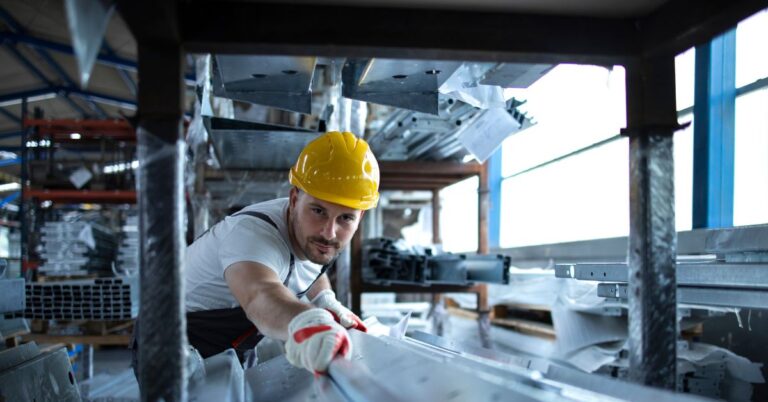Steel fabrication is a critical process in construction, manufacturing, and industrial projects. Whether you need structural components, custom metalwork, or specialized fabrication, selecting the right professional steel fabricator ensures quality, durability, and efficiency. With various fabricators offering different expertise, choosing the best one for your needs requires careful evaluation. Here’s a comprehensive guide to finding the right steel fabricator for your project.
Understand Your Project Requirements
Before selecting a steel fabricator, clearly define the scope and specifications of your project. Consider factors such as material type, size, complexity, and industry-specific standards. If your project requires intricate welding, precision cutting, or custom designs, ensure the fabricator has the expertise and tools to meet your needs. Understanding your requirements will help narrow down options and focus on companies that specialize in relevant services.
Evaluate Industry Experience and Expertise
Experience is a key factor in choosing a reliable steel fabricator. Companies with extensive industry knowledge understand the intricacies of material handling, fabrication techniques, and quality control. Look for fabricators with a proven track record in your specific industry, whether it’s construction, automotive, aerospace, or manufacturing. Reviewing past projects and case studies helps assess their capabilities and craftsmanship.
Check Certifications and Compliance
Steel fabrication requires adherence to industry regulations and quality standards. Ensure that the fabricator holds certifications such as ISO 9001 for quality management or American Welding Society (AWS) accreditation for welding expertise. Compliance with safety protocols and environmental regulations is also essential. Certified fabricators guarantee precision, consistency, and compliance with industry guidelines, minimizing risks and ensuring high-quality results.
Assess Equipment and Technology
Advanced fabrication requires modern equipment and technology. A professional fabricator should have cutting-edge machinery for processes such as CNC machining, laser cutting, robotic welding, and plasma cutting. The use of computer-aided design (CAD) and automation improves precision, efficiency, and customization capabilities. Assessing the fabricator’s technology ensures they can handle complex designs and large-scale production while maintaining quality.
Review Materials and Quality Control Processes
Steel quality plays a crucial role in the longevity and performance of fabricated components. Ensure the fabricator sources high-grade materials that meet industry standards. Ask about their quality control procedures, including inspection protocols, material testing, and finishing processes. A reputable fabricator should have stringent quality assurance measures to prevent defects and ensure consistency in production.
Compare Pricing and Cost Transparency
While cost is an important consideration, choosing a fabricator solely based on the lowest price can lead to compromises in quality. Obtain detailed quotes from multiple fabricators and compare pricing structures, including labor, materials, production time, and additional services. Transparent pricing ensures there are no hidden costs, allowing you to budget effectively. Balancing affordability with quality is essential for a successful project.
Evaluate Project Turnaround and Efficiency
Timely completion is critical for any steel fabrication project. Assess the fabricator’s ability to meet deadlines and handle project volume. Factors such as production capacity, workforce efficiency, and supply chain management influence turnaround time. Choosing a fabricator with streamlined processes and effective workflow ensures timely delivery and avoids project delays.
Read Customer Reviews and References
Client feedback provides valuable insights into a fabricator’s reliability, professionalism, and work quality. Look for online reviews, testimonials, and ratings from previous customers. Request references and speak with past clients to gauge satisfaction levels. Positive reviews and strong references indicate trustworthiness and competence in handling fabrication projects.
Consider Location and Logistics
The fabricator’s location impacts transportation costs and logistics. If your project requires large steel components, selecting a fabricator nearby reduces shipping expenses and lead times. Additionally, assess their ability to coordinate deliveries and manage logistics effectively. A well-organized supply chain ensures seamless execution and prevents unnecessary delays.
Verify Customer Service and Communication
Effective communication is essential for a smooth fabrication process. Choose a fabricator who is responsive, transparent, and willing to address concerns. A company that prioritizes customer service ensures collaboration, keeping you informed throughout the project. Establishing a strong working relationship promotes efficiency and minimizes misunderstandings.
Conclusion
Choosing the right professional steel fabricators requires careful research and evaluation. Understanding your project needs, assessing experience, verifying certifications, and comparing pricing ensures a well-informed decision. Prioritizing quality, efficiency, and reliability guarantees successful fabrication, leading to durable and precise steel components tailored to your specifications. By selecting a trusted expert, you secure high-quality results and a seamless project execution.
CLICK HERE FOR MORE BLOG POSTS

